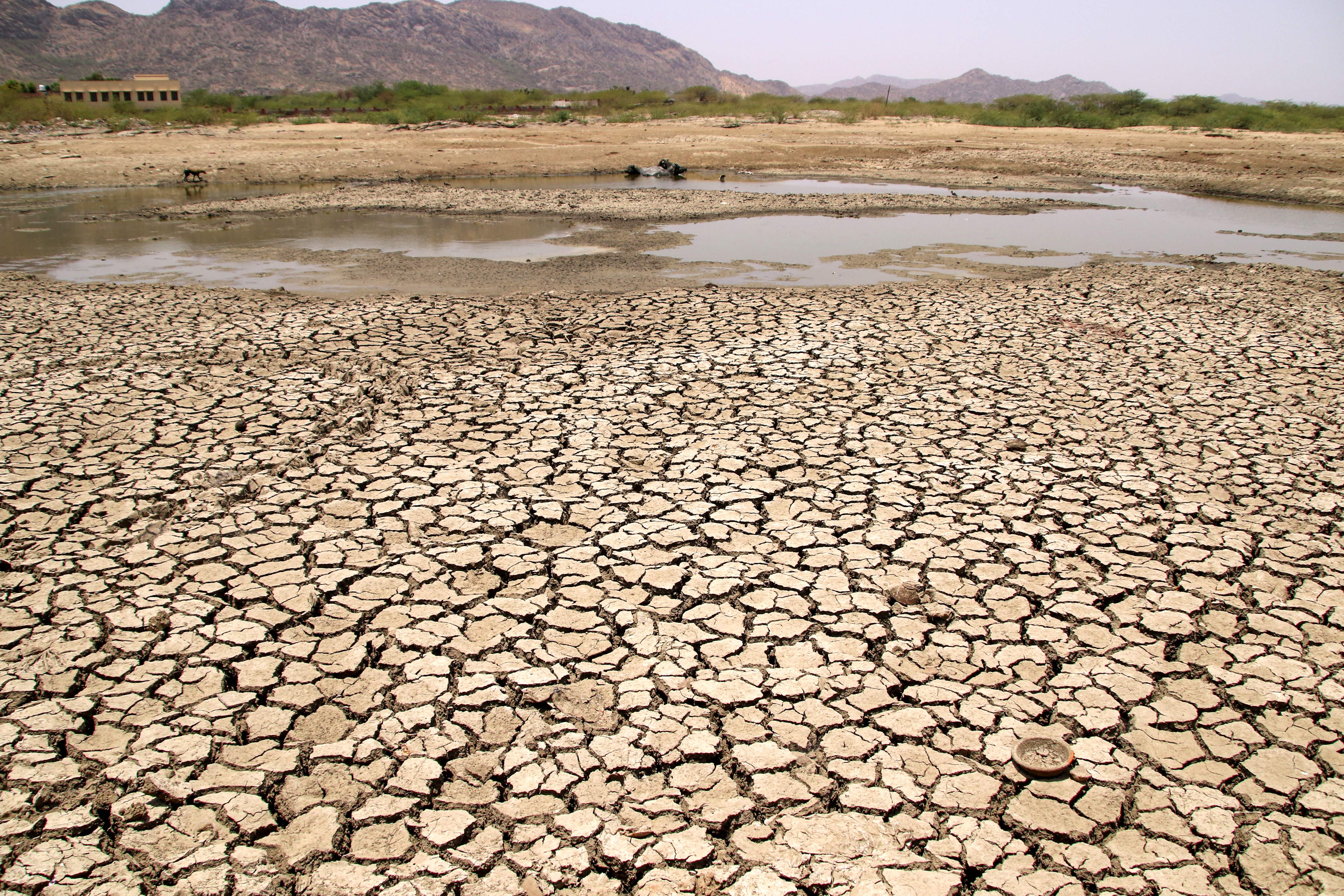Climate change is causing increase in farmer suicides in India
Drought and below average rainfall is directly linked to an increase in farmer suicide, study finds

The climate crisis has led to an increase in the number of farmers in India dying by suicide, new research has found.
Suicides in agricultural communities has been a long-standing issue in the country since the 1970s as farmers face increasing debt crisis.
Farmers account for 15 per cent of the total number of suicides in India, according to national records.
More than 10,000 farmers and agricultural workers died by suicide in 2020, the latest year that data is available.
The study, published on Wednesday, focused on five states with particularly high suicide rates - Chhattisgarh, Karnataka, Madhya Pradesh, Maharashtra and Telangana.
The researchers compared rainfall patterns in the years, 2014-15 and 2020-21.
It found that in case of a 5 per cent deficit in average rainfall, 810 farmers died by suicide in a year.
But based on statistical modelling, the researchers predict that if there was a 25 per cent deficit in rainfall, then the number of farmers dying by suicide in a year would increase to 1,188 individuals.
“Climate change is making agriculture an extremely risky, potentially dangerous and loss-making endeavour for farmers, and it’s increasing their risk of suicide,” said Ritu Bharadwaj, a principal researcher at the International Institute for Environment and Development (IIED), which conducted the research.
“With their incomes heavily dependent on climate, farmers are on the front line of this crisis.”
India’s farming sector has been deeply impacted by more frequent and widespread droughts in recent years. The increasing frequency of heatwaves, a direct result of the climate crisis, is making matters worse.
Farmers are vulnerable due to several factors such as reliance on cash crops like cotton, high rates of drug and alcohol addiction, and limited literacy levels which means they can be unaware of social protection schemes.
The unavailability of affordable loans is also exacerbating the distress. Farmers take loans to invest in their crops during the harvesting season, but the lack of access to affordable credit, or awareness of government schemes, pushes them to unofficial sources to obtain money.
If their crops are destroyed due to drought or other climate-related issues, farmers often fall into a debt trap.
A devastating, record-breaking heatwave which struck the country in 2022 left the agricultural sector in heavy distress after it decimated key crops including wheat, destroyed, leading to the South Asian nation imposing an export ban.
This year India had its hottest February on record and more heatwaves are expected in the coming weeks with concerns rising over the crops destroyed again by unseasonal heat and rains.
The United Nations estimates that the climate crisis has reduced India’s GDP between two to five per cent in the past 20 years.
The impact of climate change on Indian farmers is expected to worsen as the planet gets warmer. UN’s top scientific body, The Intergovernmental Panel on Climate Change (IPCC), has identified India as the country most at risk of reduced crop production due to climate crisis.
Urgent preventative action for climate-related suicides in rural India must be taken, said Professor Bharadwaj.
The researchers suggested several ways to address the issue.
One solution is for governments to implement social protection schemes, such as public works programs, that can offer a safety net in the form of cash or food, build assets for long-term resilience, and prevent a humanitarian crisis.
Climate change is making agriculture an extremely risky, potentially dangerous and loss-making endeavour for farmers, and it’s increasing their risk of suicide
The central Indian government, along with state governments, have passed several laws in the past to prevent farmers from debt distress, including credit facilities, crop insurance and loan waivers. But the effectiveness and reach of these policies to those in need remains under question.
The IIED research has shown that when farmers had access to wage employment through India’s Mahatma Gandhi National Rural Employment Guarantee Act (MGNREGA) social protection program, suicide rates were low.
The research found that when employment from the social protection scheme increased, the number of farmers dying by suicide drastically dropped, showing a threefold increase resulting in a 75 per cent decrease in suicides per year.
The study stresses the need for a better support system for farmers to manage their production and market risks due to the climate crisis.
It also emphasises the need to make insurance accessible, that can absorb shocks and spread risks, along with mental health treatment needs to become more widely available.
If you are experiencing feelings of distress, or are struggling to cope, you can speak to the Samaritans, in confidence, on 116 123 (UK and ROI), email jo@samaritans.org, or visit the Samaritans website to find details of your nearest branch.If you are based in the USA, and you or someone you know needs mental health assistance right now, call the National Suicide Prevention Helpline on 1-800-273-TALK (8255). This is a free, confidential crisis hotline that is available to everyone 24 hours a day, seven days a week.If you are in another country, you can go to www.befrienders.org to find a helpline near you.
Subscribe to Independent Premium to bookmark this article
Want to bookmark your favourite articles and stories to read or reference later? Start your Independent Premium subscription today.

Join our commenting forum
Join thought-provoking conversations, follow other Independent readers and see their replies